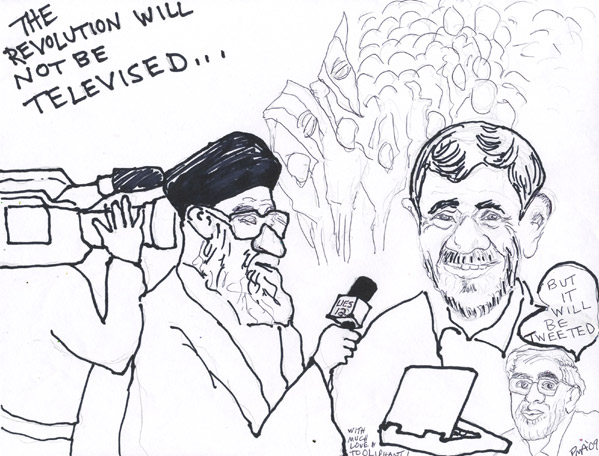It’s up to Iran now
 She was just 5 years old when she fled Iran, but many of the memories remain vivid.
She was just 5 years old when she fled Iran, but many of the memories remain vivid.
“I was in Iran during the first revolution. We left because my father’s life was threatened.”
Few people have the kind of perspective on Iran here than Melahat Rafiei. Her father was a high-ranking official in the Shah of Iran’s Air Force.
After Saddam Hussein sought to take advantage of the unrest in Iran after the 1979 Revolution and invaded the country, Iranian leaders tried to woo her father back.
“Then my Dad led a coup (against Iran’s leadership) that failed in late ’82 and ’83,” she said. “We left very quickly after that and we escaped to Pakistan.”
Rafiei, the executive director of the Orange County Democratic Party, said she still talks to friends and family back in Iran and has been in touch with the situation there.
“They’re pouring acid on protesters. It’s unbelievable,” she said.
The plainclothes militia also throws paint in the air during protests to mark people in the crowd. Later, when they disperse, these thugs target the protesters.
“They attack them with razors, knives. It’s a slaughter and a massacre,” she said. “I talked to a friend of mine there a week ago and she said the people there are not going to stop.”
The hunger for change is just too strong now. In fact, the yearning for change started in 1976, which led to the Islamic Revolution of 1978-79 and the purging of the shah. The leadership there, though, has not followed through. And this uprising is unlike any other. It’s not just one group, like the students in 1999 who were upset at the shuttering of college newspapers or the pushback in ’82 and ’83, which was led by some in the military.
“This uprising — it’s young people, old people. It’s people looking a lot more Western. They really feel like the one thing the Islamic Revolution was supposed to do was get rid of the Shah and bring in a representative government. They feel duped now. This election was the last straw and they are tired of being lied to.”
When Rafiei’s family fled to Pakistan with the help of smugglers they were abandoned only to be picked up by other smugglers who got them out of the country under the ruse that they were Iranian Jews. That led them to Israel. They were uniquely fleeing as a family. Usually, the patriarch would flee and send for the family later, Rafiei said.
Rafiei’s father was arrested in Israel because they thought he was a spy for Iran. Fortunately, a family in Tel Aviv who took them in put their home up as collateral and they were able to go to Rome on a month-long visitor visa.
“We would go to the embassy every day and on the very last day of the visa we got political asylum to the U.S., and a couple of days later we flew to San Jose,” she said.
Now she finds so many Americans, especially Iranian-Americans, wanting to help, but there’s not much we can do, she said.
“Iranians here need to make sure the world is aware of the human-rights atrocities, but what happens from this day forward is up to Iran,” she said.
Western meddling in Iran has proven disastrous in the past, she noted.
When Rafiei visited Iran in 2005 she did a lot of listening.
“I wanted to understand the mindset of the people,” she said. “The people are very pro-West. They want to be like Americans. They want our freedoms. But they don’t want America meddling in our government.”
She noted that the largest pro-American demonstrations after 9/11 happened in Tehran.
“Three months later President Bush was calling them the Axis of Evil. Talk about a squandered opportunity,” she said, adding that President Mahmoud Ahmadinejad’s election in 2004 was due in part to Bush’s saber rattling.
They want the right to develop nuclear power, but don’t want nuclear weapons, she said. And they don’t like the U.S. lecturing to them.
“We don’t give Iranians in Iran enough credit. They’re smart people. We must let them govern themselves,” she said. “All we can do is keep this alive in the media.”
So keep it up with the social networking and keep the flow of communication going, but other than that this revolution is up to the people, she said. President Obama was right not to take a more active role in the protests, she added. Continuing engagement will hearten the opposition in Iran, but won’t be viewed as active meddling, in Rafiei’s estimation.













